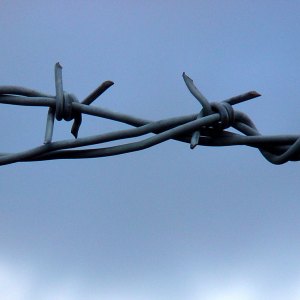Contempt:Testing the Boundaries in Relation to Juries
Ursula Cheer, Professor of Law, University of Canterbury, Christchurch asks; will TVNZ 's recent screening of their current affairs programme Sunday provoke a legal response clarifying 'contempt'?
The Sunday interview: Has the line been breached?
 On 18 November 2012, Television New Zealand's current affairs programme Sunday interviewed a woman juror who had sat on the David Bain retrial which had acquitted him of murdering his parents and siblings in 2009. The woman was not identified by name although segments of her face and the back of her head were shown during the interview. The images of the woman’s face showed distinctive eyes, mouth and haircut without any pixillation. The juror spoke using an American accent. The programme makers did not instigate the interview as the woman had approached them with her concerns.
On 18 November 2012, Television New Zealand's current affairs programme Sunday interviewed a woman juror who had sat on the David Bain retrial which had acquitted him of murdering his parents and siblings in 2009. The woman was not identified by name although segments of her face and the back of her head were shown during the interview. The images of the woman’s face showed distinctive eyes, mouth and haircut without any pixillation. The juror spoke using an American accent. The programme makers did not instigate the interview as the woman had approached them with her concerns.
In the programme the woman explained that she wished to clear up confusion that had arisen about the effect of the acquittal in the retrial. She stated that the jury had not found Mr Bain innocent, but had simply decided that the prosecution had not proved beyond reasonable doubt he killed his family in Dunedin in 1994. The juror emphasised that she did not want to question the verdict in any way.
The juror also stated that some other jurors in the retrial made private visits to the crime scene in Dunedin and brought internet material about the case into the jury room in breach of clear instructions from the judge not to do so. The juror said she did not believe David Bain should receive compensation from government for the 13 years he spent in prison.
The Risks of Juror Interviews & Contempt
The programme raises real issues about contempt of court. Any statement that ‘tends to create a disregard of the authority of courts of justice’ can be contemptuous. It is always risky, after a trial has finished, for media to interview members of the jury. There is a statutory prohibition on interviewing jurors to find out how they reached their decision in England (Contempt of Court Act 1981, (UK), s8) and in some Australian states (see eg: Jury Act 1977 (NSW), s 68B ).
Current state of NZ law on contempt
In New Zealand, a case in which Radio New Zealand was found guilty of contempt and fined $30,000 for approaching and interviewing some of the jurors in the trial of David Wayne Tamihere for murdering two Swedish tourists, is currently the last word on the matter (Solicitor-General v. Radio New Zealand Ltd [1994] 1 NZLR 48). There, in interviews broadcast by RNZ, one juror expressed doubts about the guilty verdict after further evidence came to light after the trial. However, others had no doubts about the verdict and gave reasons for this view.
3 Reasons NOT to interview and broadcast
Three clear reasons emerge from this case as to why such interviews should not be sought or broadcast.
- The jury system requires that jury verdicts be final. There would be continuing uncertainty, and a case would never be closed in the public mind, if jurors could say afterwards that they had doubts about their decision. In any event, juries do not give reasons, and different jurors in the same trial may reach the same decision for quite different reasons. Comparing and discussing those reasons would misrepresent the way the jury system operates.
- All jury deliberations must be free and frank. For this to occur, jurors need to know that the views they share in the jury room will not be subsequently revealed to the world.
- The privacy of jurors must be maintained. Jurors serve on the understanding that their privacy will be respected and their identity will remain undisclosed. Without this assurance, numbers of those prepared to serve on juries might be severely reduced.
The Radio New Zealand case suggests it is unsafe either to approach jurors to try to get comment about a decision, or to publish information about a jury’s deliberations disclosed in an interview with a juror. It seems also that both of these things can be quite separate contempts: the seeking out for interview is separate from the publication of the information. So even if a juror approaches media voluntarily, great care is still needed in deciding whether to publish what the juror is prepared to say.
Lack of clarity in law
It remains unclear what exactly it is forbidden to publish. Under the English law, it is an offence to disclose or solicit details of a jury’s deliberations, and that is at the centre of New Zealand law too. A recent decision suggests ‘jury deliberations’ can be interpreted somewhat widely. In Attorney-General v Seckerson and Times Newspapers Ltd [2009] EMLR 20 a juror and the Times were found in contempt following the publication of an article in which the verdict in a case of murder by a child minder was questioned. The foreman of the jury was reported to have questioned the medical evidence and why the case ever came to court, and particulars of the initial vote cast by jurors, and the fact that the jury reached its verdict using common sense, were disclosed.
The UK provision specifically prohibits disclosure of votes, and so it is unsurprising that contempt arose from that statement, even though the final vote did not differ from the initial one. The reference to the jury using common sense is more problematic, but the court considered that the reference, although intended to criticize and suggest the jury had not used correct and logical thinking, constituted contempt not because it was offensive, but because it simply disclosed and revealed the opinions of the jury and legitimate debate in the course of deliberations should not be revealed outside. That decision has been criticized by blogger Steven Price in his blog 'Media Law Journal’, on the basis that the juror was trying to make the important point that the jury had been overwhelmed by expert evidence, and that the particulars of the decision making were not actually revealed. In other words, Price found the interpretation of the English law was overly broad.
Prohibition interpreted broadly
The New Zealand case law suggests that prohibition in this country may also be wide and may cover a case where a juror, without disclosing the secrets of the jury room, later tells the media that he or she regrets the decision or has changed his or her mind in the light of after-acquired evidence: statements of that kind can prejudice the desire for finality. But other sorts of statements may well have no harmful tendency – for example, a juror who gives his or her reactions to the way the case was handled by the judge, which is a public matter visible to all who were present in open court.
Increasing tolerance for public comment by jurors
It seems apparent, also, that there is more tolerance than in the past. Immediately after the Bain retrial, jurors also approached media and the resulting interviews probably disclosed more information than has ever been published before about a recent jury trial, without attracting any prosecution. It will be remembered that a juror in the trial approached media and gave interviews, which resulted in stories about her trauma, being approached by anti-Bain protesters and a personal moment she shared with Mr Bain after his acquittal. She also talked of the pressures the three-month trial placed on jury members. Other articles reported that the behaviour of some jurors in the retrial had been questioned after they hugged Mr Bain following his acquittal and went to a victory party in Christchurch. In fact, these interviews were mentioned by the different juror in the recent Sunday programme.
Exceptions to prohibitions
It may be also that there are exceptions to the prohibitions laid down by the court. The Radio New Zealand judgment hints that if the juror’s revelations raise a matter of real public concern, publication might be permissible ([1994] 1 NZLR 48, at 58). This hint at a public interest exception is still to be tested, especially in the light of s 14 of the New Zealand Bill of Rights Act 1990 in which freedom of expression is given some prominence in the law.
The Sunday programme provokes
The Sunday interview is somewhat provocative in a number of ways, in appearing to set out to test the sort of interpretation the Radio New Zealand case should get today. The juror approached the media in this case, and made it very clear during interview that she did not question the verdict in any way and wished to clarify what she believed was the effect of the acquittal. She did not disclose any jury room discussion or the reasons for the decision. This seems to carefully comply with the requirements of the law. Arguably also, the disclosure of alleged jury misbehaviour was a matter of real public concern.
Has TVNZ blundered?
However, in other respects, TVNZ may have blundered. The efforts of the broadcaster to protect the identity of the juror do not look robust. The extensive shots of parts of the juror’s face without pixillation do not appear to be an effective method of preserving identity. Further, the juror may not have been questioning her own commitment to the verdict, but in disclosing the alleged misbehaviour of others on the jury, indirect questions are raised about the robustness of the verdict generally, and this may be contempt.
Crown Law is investigating the programme. It will be very interested in the allegations of juror misbehaviour, but also in the question of the protection of identity.
Article by Ursula Cheer, Professor of Law, University of Canterbury, Christchurch

Thomson Reuters NZ offers an online database of Media and Privacy cases containing 2,500 case records. If you'd like to find out more please contact either our customer care team or talk to your account manager.